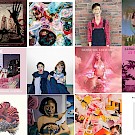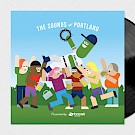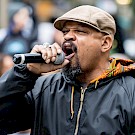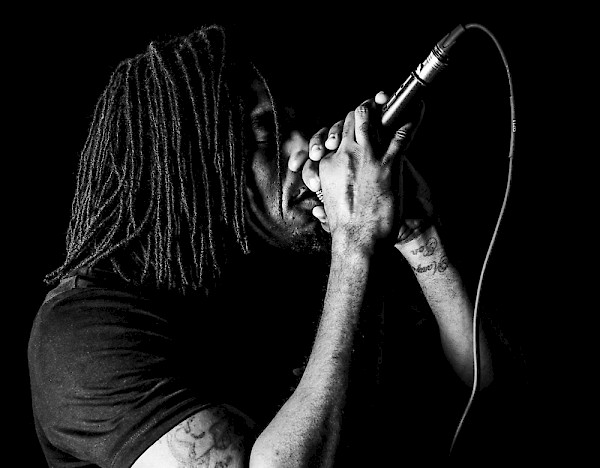 Portland hip-hop artist Rasheed Jamal—listen to a brand new song below: Photo by Sam Gehrke
Portland hip-hop artist Rasheed Jamal—listen to a brand new song below: Photo by Sam Gehrke
“We hold these truths to be self-evident, that all men are created equal, that they are endowed by their Creator with certain unalienable Rights, that among these are Life, Liberty and the Pursuit of Happiness.”
I am a white Portlander, born and raised. Regardless of my color, I’ve led a very privileged, supported life and I believe it’s important to recognize that. I believe it’s also very important to try to understand what life is like in another’s shoes, especially those who have faced extremely different circumstances.
As the face of our city changes and our nation, once again, struggles to truly embrace the second paragraph of the Declaration of Independence, unsavory facts from our local past resurface and reinflame passions. As Farnell Newton, a trumpeter, community leader and founder of the Portland Black Music Festival, writes in this issue: “If you don’t know your past, you don’t know your future.”
Portland’s present is not exactly rosy. It’s not just bikes, brews and bands—in fact, very few in the historically marginalized black population even see these things as representative of themselves. Gentrification is breaking up their longstanding communities and the worst part about it is not the rejuvenated neighborhoods or bougie coffee shops, it’s the fact that newcomers to their hoods look at them like they don’t belong anymore.
“The idea of a black music festival offended somebody. But a Polish music festival doesn’t offend you. Oktoberfest doesn’t offend you. Cinco de Mayo doesn’t offend you,” begins rapper Rasheed Jamal (who’s featured on this issue’s cover). “The idea of a black man in this country having his own thoughts, his own opinions, his own mind, his own way of wanting to live his life, and that not being something that fits within the paradigm of he’s about to fuck up somehow. It scares people. It scares weak people. I can’t even say white people—it scares weak people.”
So how can we change ingrained attitudes? We need to talk.
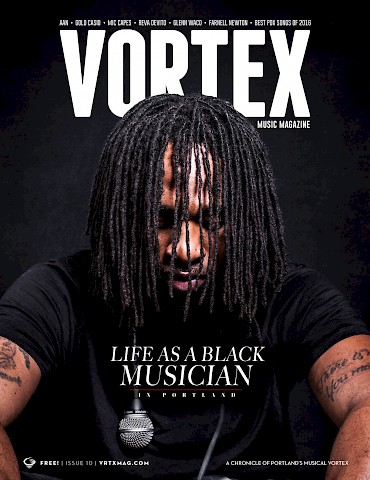 Click to get back to reading the current issue! Cover photo by Sam Gehrke.“A problem with what this city is going through right now is also a part of what America is going through right now,” says veteran concert promoter and hip-hop scene mainstay StarChile, “in that people that look like you [white], and people that look like me [black], don’t do this. They don’t sit down at a table and talk.”
Click to get back to reading the current issue! Cover photo by Sam Gehrke.“A problem with what this city is going through right now is also a part of what America is going through right now,” says veteran concert promoter and hip-hop scene mainstay StarChile, “in that people that look like you [white], and people that look like me [black], don’t do this. They don’t sit down at a table and talk.”
Have a conversation. Sounds simple enough, huh?
This issue is a conversation. It involves race and gentrification and is an attempt to find courses of forward action while also shining a light on beacons of positivity within our fractured society. But most importantly, it involves community. It involves recognizing the fact that our changing city affects different people differently. It involves understanding those differences and coming together to preserve the community and culture we value.
That’s not a race issue. It’s a human issue and, as a city, we’re all in this together.
Chris Young Editor-In-Chief

